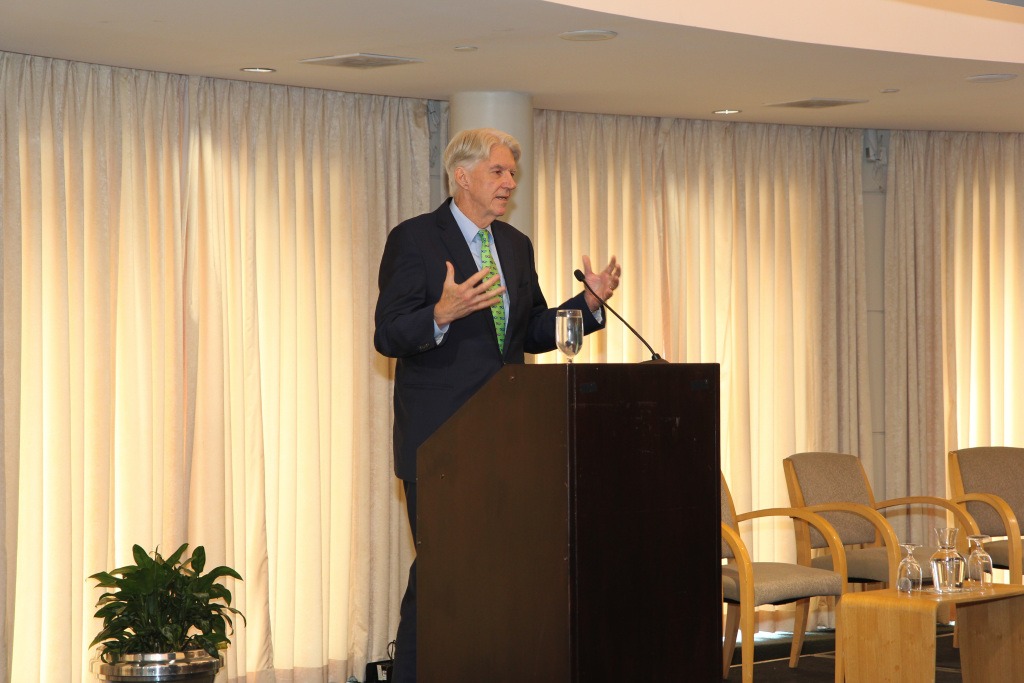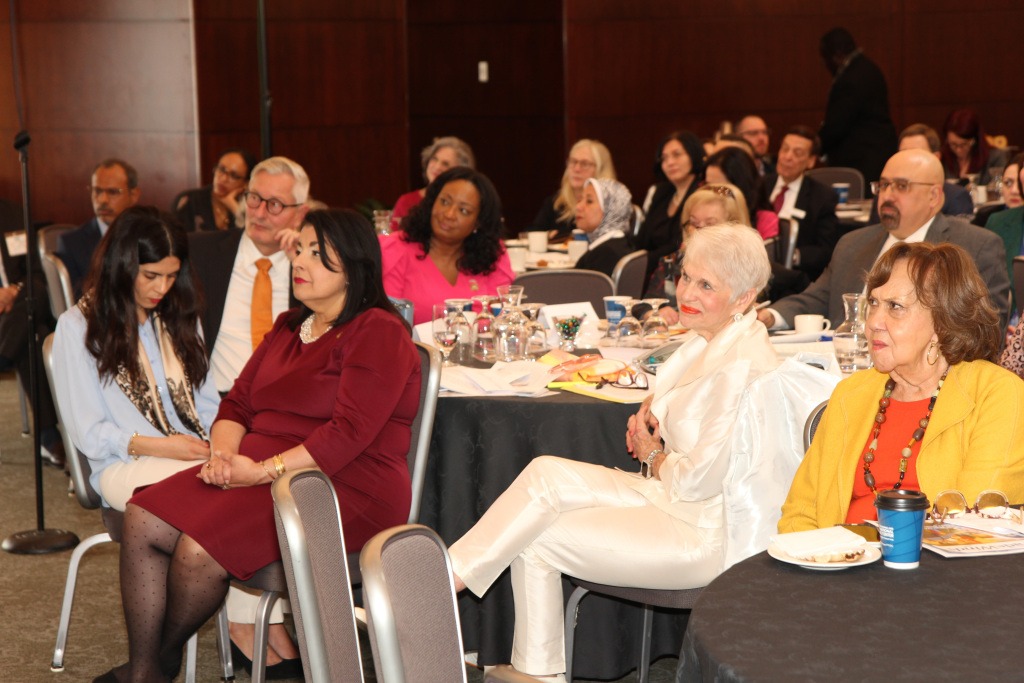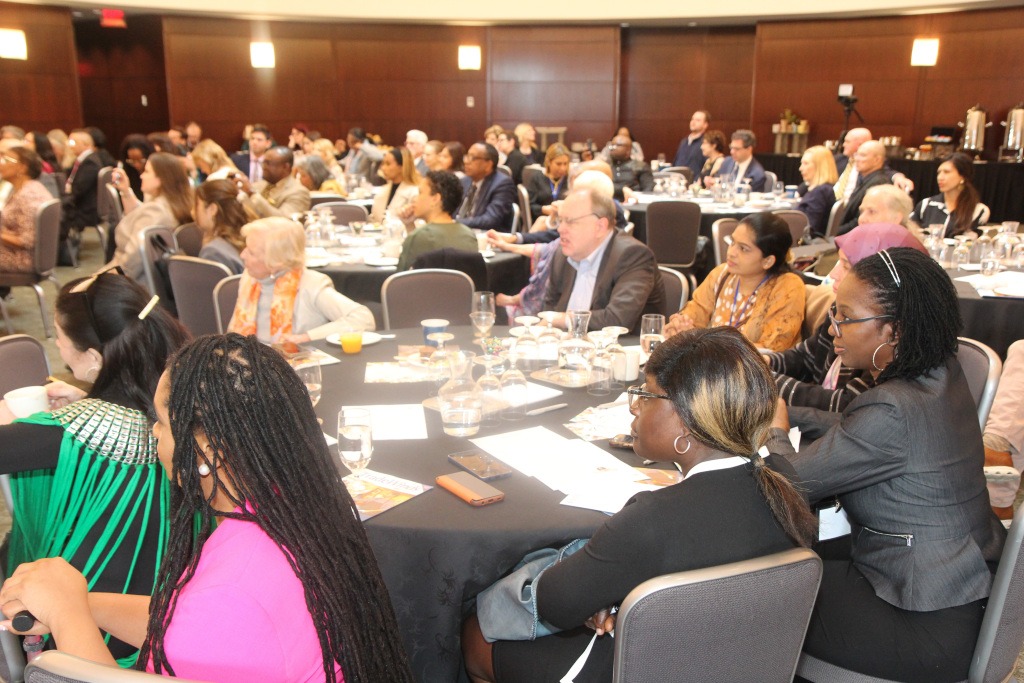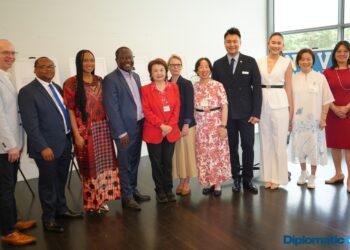The 2024 inaugural Washington Educational & Cultural Attaché Association (WECAA) meeting at the Ronald Reagan Building in Washington DC featured Phil Noble, the founder of World Class Scholars, a program that connects classrooms around the world and empowers students to become global citizens. Jan DuPlain, President of Du Plain Global Enterprises and a founding member of WECAA, fittingly introduced him, praising him as a “Renaissance man” for his exceptional achievements and contributions across various sectors.
Phil Noble is a pioneering entrepreneur with 40+ years of experience in politics, media, and technology innovation. He has led over 350 public affairs projects globally, including 10 US presidential campaigns. His firm is renowned for its work in digital strategies for political organizations, NGOs, and governments worldwide.

Phil began his speech by expressing admiration for WECAA and its potential to effect global change through its extensive network spanning nations and organizations. He vividly illustrated international educational cooperation by stressing the power of connecting students worldwide through shared interests and collaborative projects.
Mr. Noble shared personal anecdotes, recounting his upbringing in rural Alabama and how an experience at Cambridge University ignited his passion for global connectivity. His background in political campaigns and early recognition of the internet’s potential led him to pioneer political internet companies, navigating through both successes and challenges.

The genesis of World Class Scholars stemmed from Phil’s vision to connect schools internationally. He told a touching story of linking a school in rural South Carolina with one in Kenya, indicating how simple interactions stimulated curiosity and mutual learning among students.
Despite initial hurdles, Phil’s perseverance and strategic partnerships culminated in developing a scalable platform for educational exchange. This platform, now operational in 82 countries, provides free access to educational resources, tools, and comprehensive teacher training, empowering educators and students worldwide.
Phil related the program’s positive impact, citing a notable reduction in teenage pregnancy rates in Ghana attributed to broader exposure to opportunities facilitated by global educational connections. This success story exemplifies the profound societal changes achievable through building intercontinental educational networks.

In his closing remarks, Phil Noble disclosed “we are now focusing in a big way on Africa. We just signed some recent agreements thanks to Her Excellency, Ambassador Suka-Mafudze, the African Union Ambassador to the United States, and some others to be in about 7,000 schools in Africa within a short amount of time.”
He added, “the concept is incredibly simple. We want to connect teachers and students and give them what they need to be successful. That’s it. And we have a whole content section of courses, tools, software, teacher training, and certifications; it’s all free. Microsoft provides everything but we also have a bunch of stuff from IBM. Our goal is to have this as an Educational Wikipedia. Where anybody can put in their information. The benefits to the teachers and students sort of go on forever.”









